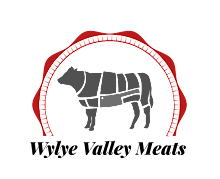 Radical Brewing
Radical BrewingRecipes,Tales & World-altering Meditations in a Glass
Randy Mosher
Brewers Publications, 2004
PB, 324pp
£9.88 delivered from Amazon
Reviewed January 2010
Randy Mosher is clearly a clever bugger. He not only wrote this book but designed it as well. More of which later.
Radical has a couple of distinct meanings which can be applied to the title of this book. First, going to the root or basics and secondly, far-out, wild or unusual, This is apt because the book does contain both elements.
This is not a book for the neophyte brewer but for someone who has a few brews under the belt and wants to find out more or expand their horizons and it will certainly do this well. Although all the information is there it is not organised in a way that would be easy for the starting brewer but of course there are plenty of other books or web sites which will fulfill this need.
The first half of the book deals with the brewing process and theory behind it: radical in the first sense. A lot of the information is seen from an historical perspective which I like because it accords with my outlook on brewing. Although this is quite detailed and in-depth Mosher's style is light and breezy and he gets his point across easily. He also, clearly, knows his beer history and has read and researched much more deeply the authors of some other, supposedly authoritative books (and yes, I am thinking of the Classic Beer Styles Series). For instance his brief description of the history of porter which, let's be honest, is a pretty contentious area is well balanced and thought out and avoids all the usual dodgy information. Mosher's views on brewing are always well reasoned and I rarely took issue with his suggestions. For instance in the hops section Mosher suggests there is no homebrew justification for high alpha hops and that pellets give an inferior flavour to whole flowers. That seems pretty much bang on to me. You might argue that the flavor of pellets is not "inferior" but it is well established that it is different.
There are some sections that work really well. I particularly liked the section on off flavours and how to mimic them. Not, I hasten to add, so that you may add them to your beer but so you can detect them and eradicate them! I also appreciated his approval of the use of sugars. Now I know to some brewers this is spawn-of-the-Devil stuff but, having overcome my CAMRA inspired aversion to sugar, I have come to appreciate it is often a useful, and sometimes a necessary, ingredient in beer. Annoyingly our US brethren seem to have, as always, relatively easy access to a greater range of this product than we do. Damn their eyes.
In the second half of the book there is more concentration on beers from around the world mainly, again, from an historical perspective. This is very wide ranging and there are some interesting beers to try or at least think about and perhaps inspire you. But there is also a element of that annoying (to me anyway) American habit of just chucking anything in willy-nilly and assuming it will be marvelous. Well it might be, but usually getting the quantities of flavouring additives (spices etc) right is pretty difficult and without considerable thought, and usually a bit of trial and error, the results are less than stellar. It is the US "can do" thing, I think. And why do you need to put mint in stout? It's not exactly lacking in flavour is it? And if you think of the difference between a Guinness clone and an imperial stout there is one hell of a lot of variety as well.
There are some odd errors, especially since it is obvious that Mosher is very well read in the brewing literature and well traveled. For instance a british beer barrel doesn't hold 31.5 gallons (although oddly the volumes of the kilderkin and firkin are correct) and Dorset isn't a short hop south of London. I was born in one and lived in the other. Dorset is definitely to the west of London. OK I might give you southwest.
I do have, however, severe issues with the design of the book, which was undertaken by Mosher himself. I don't know, but would hazard a guess, that he is a designer rather than typographer. The design looks modern and attractive at first look but it is a right royal pain to use. For instance on the facing pages 98 and 99 there is one illustration, two recipes in full page width tables and two small tables inserted into the text blocks. In all there are only eleven lines of type on the two pages. This sort of design is repeated throughout the book. So what's the problem? Well reading the text is repeatedly and frequently interrupted by the extra matter on the pages. The text is not allowed to flow, which is a pity because it is actually very good. You either have to stop reading to consult the tables, recipes, sidebars etc or ignore the extraneous matter on concentrate on reading the text through before returning to the other matter. This is what I did, which is not ideal, but I found the whole experience of using the book incredibly frustrating if I didn't. A pity: there is a much better book in there trying to get out.
So not a perfect book then. But certainly a useful, stimulating, and informative one. I am glad I added this book to my library. If you are looking to expand you knowledge of the history of beer and brewing or want to expand your brewing horizons to include a wider palate of beer styles, types, and flavours you could do much worse than Radical Brewing. Recommended.



